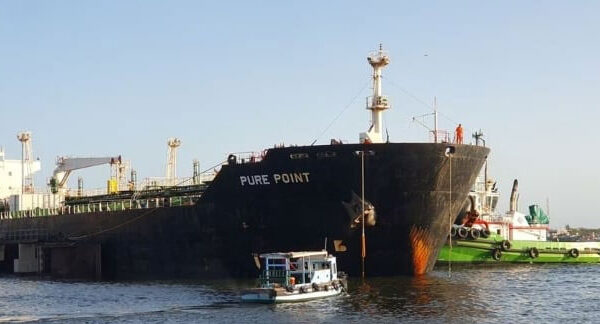How are India and China benefiting from Russia’s cheap oil and gas?
Indian Prime Minister Narendra Modi has said that energy conservation of the country is very important and there should be no restrictions on energy supply.
After Russia’s attack on Ukraine, India has been buying large quantities of cheap Russian oil and China’s imports of Russian oil have also increased.
How much Russian oil is going to Asia?
India and China are currently the largest buyers of Russian crude oil. India’s imports of Russian oil increased at the beginning of this year and peaked in June and July and continued till October. China’s purchases of Russian oil have fluctuated this year, falling at the start of Russia’s invasion of Ukraine in February, but then increasing significantly in the following months.
After the invasion of Ukraine, Russia has been selling oil at discounted rates since March this year. In March, the combined oil imports of China and India from Russia exceeded the combined oil imports of the 27 EU member states.
It should be noted that apart from these two countries, other countries have also benefited from discounted Russian crude oil. For example, Sri Lanka, which is suffering from severe economic crisis.
The flow of cheap Russian oil is moving to Asia After the invasion of Ukraine, the buyers of Russia’s Urals crude oil actually decreased significantly. Some foreign governments and companies decided to freeze Russia’s energy exports, causing the price of Russian oil to fall. At one point earlier this year, Russian Urals crude oil was more than $30 a barrel cheaper than global Brent crude. By the end of September, it was about $20 a barrel cheaper. The Indian government has defended its purchases from Russia, saying it has to source oil from where it can be found cheaply.
The US government has been critical of these purchases, although it is now clear that it accepts that India can continue to buy discounted Russian oil. The G7 group of the world’s rich nations, which includes Britain, the United States, France, Germany, Japan, Italy and Canada, has proposed a plan to cap the price of Russian oil to reduce revenues.
But it is not yet clear how this could affect countries like India and China, which already buy Russian oil at a discount.
Moscow has said it will stop selling oil to countries that try to impose price caps on its crude exports.
In addition, the European Union has planned to completely stop the import of Russian oil by sea in connection with the measures taken against Russia after the invasion of Ukraine in December.
What will be the effect of sanctions against Russia?
Although the price of Russian crude oil is attractive, Indian refineries face a challenge in trying to finance purchases, as restrictions on Russian banks are affecting payment transactions.
One of the options India is considering is a system based on local currencies, where Indian exporters to Russia are paid in rubles instead of dollars or euros and imports are paid in rupees.
China’s state-owned oil companies are increasingly using Chinese currency instead of US dollars to buy oil from abroad.
How much Russian gas goes to Asia?
About 50% of India’s total gas requirements come from abroad. But it is mostly from the Gulf states and very little from Russia.
Shipments of Russian LNG (liquefied natural gas) to India are rare, says Antonio Pacesia, a commodity industry expert with Argus Media. are less than cargo.
China imports most of its gas through pipelines from Central Asia. Currently, Turkmenistan is the largest supplier country.
But once a new pipeline, called Power of Siberia, is completed later this decade, Russia could emerge as China’s biggest gas supplier. And imports of liquefied natural gas (LNG) from Russia have increased significantly this year, although most of China’s LNG still comes from other countries.
China has also signed new agreements to transport Russian LNG through Arctic sea routes. In September, Russia’s Gazprom and China National Petroleum Corporation agreed to use Russian rubles and yuan instead of dollars to pay for Russian gas.








